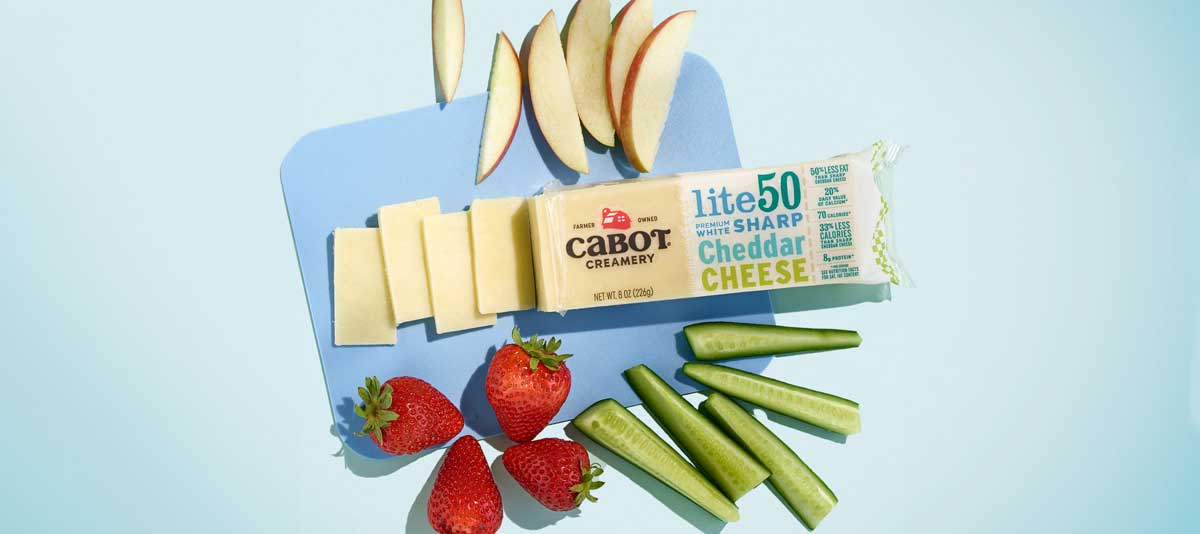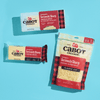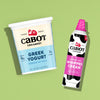
Which Cheeses Are Best for a Low Cholesterol and Fat Diet?
Statista reports that the average American consumes 40.2 pounds of cheese every year. According to U.S. dietary guidelines, people should consume no more than 300mg of cholesterol per day with fat contributing to only 20% to 35% of their calorie intake. With a little knowledge, you can add healthy cheese with minimal amounts of calories and cholesterol to your diet.
Is Cheese Bad for You?
Contrary to widespread belief, not every cheese is loaded with fat, cholesterol, and calories. Some cheeses have lower fat and cholesterol counts. Even full fat cheese is beneficial in moderation because your body needs small amounts of fat to process vitamins. Plus, cheese is delicious, and enjoying your favorite snack brightens your day.
What Are Some Low-Fat Cheese Options?
You can buy several varieties of low-fat cheese. Most low-fat cheese is made from skim milk, although some products, such as cheese curds, are made and processed to remove the fat afterward. These products are still tasty and rich in nutrients.
Reduced fat cheddar cheese
Cabot's Lite50 Sharp Cheddar Cheese offers a mild, creamy, and buttery flavor. This cheese melts and slices just like its full fat counterparts.
Lite50 Sharp Cheddar Cheese - (1 oz)
- 4g fat
- 15mg cholesterol
- 1g carbohydrates
- 8g protein
- 262mg calcium
Low fat feta cheese
Feta cheese is made from sheep or goat's milk, giving it the salty, tangy flavor that differentiates it from cow's milk products. Low fat feta is a little less rich and creamy but offers the same distinct taste. You can substitute full fat feta for the low-fat version in virtually any recipe.
Low fat feta cheese (1 oz)
- 2.4g fat
- 12mg cholesterol
- 1.6g carbohydrates
- 5.7g protein
- 60mg calcium
What Are Some Fat Free Cheese Options?
Eliminate more fat from your diet with these low cholesterol cheeses. Producers spin milk in a centrifuge to separate the fat, creating skim milk that they use for their products.
Cottage cheese
Cottage cheese is one of the healthiest cheeses that you can eat. This fresh cheese comes in small curds with a mild flavor and smooth texture. You can build strong bones, teeth, and muscles with this rich source of calcium and protein. Cottage cheese also promotes weight loss by making you feel satiated.
Fat free feta cheese
This cheese is a little less rich and creamy than traditional feta but still brings a salty, tangy flavor. Cheesemakers produce fat free feta from a combination of skim and whole goat or sheep's milk. Enjoy this product in sauces, dips, salads and sandwiches.
Fat free feta cheese (1 oz, 28g)
- 0g fat
- 3.9g cholesterol
- 2g carbohydrates
- 6g protein
- 113mg calcium
Fat free mozzarella
Like other fat free cheeses, this mozzarella is a little less creamy, but it retains the characteristic mild, salty flavor. Add this mozzarella to pasta, pizzas and charcuterie boards.
Fat free mozzarella (1 oz, 28g)
- 0g fat
- 0g cholesterol
- 2g carbohydrates
- 9g protein
- 20% daily value of calcium
Fat free American cheese
American cheese is made from different cheeses blended and shaped into the classic yellow singles. Despite the reputation as an unhealthy food, you can buy fat free American cheeses.
Fat free American cheese (1 slice, 19g)
- 0g fat
- 0g cholesterol
- 3g carbohydrates
- 4g protein
- 35% daily value calcium
What Are the Most Healthy Cheese Options?
Cheese is loaded with nutrients, such as protein, calcium, vitamin K, potassium, and phosphorus. Most cheeses can be healthy, but the right cheese for you depends on your health, diet, and lifestyle.
If you want to cut calories, look for products made from sheep or goat's milk or created for low fat diets, such as Cabot Lite50 Sharp Cheddar. Similarly, high protein cheeses help you work out and build muscle. Ask your doctor about finding the right product for you.
Cottage cheese
Cottage cheese is a low-calorie cheese rich in vitamins and minerals. This product is easy to digest and loaded with probiotics, which strengthens your immune system and reduces your risk of certain diseases.
Unpasteurized cheese
You can't buy unpasteurized milk cheese in the United States, but raw cheddar, raw gouda and other varieties have high levels of nutrients and probiotics.
Protein-rich cheese
Cheddar cheese, swiss cheese and cottage cheese are a few examples of cheese that is loaded with protein and helps you build strong muscles.

Is Cheese Good for You?
Cheese is part of a balanced diet when consumed in moderation. Some cheeses are higher in fat and cholesterol, but all cheese has nutrients, such as calcium, protein, vitamins, and probiotics.

Healthy Cheese Recipes:
Add savory, salty, and tangy cheeses to your diet with these nutritious cheese recipes. Start with a healthy potato casserole loaded with vegetables and spices. Low fat mac and cheese provides a lighter take on your favorite comfort food.
For a filling entree, prepare grilled cheesy portobello caps with turkey and sage. Minimize carbs with a crustless spinach quiche packed with cheese and egg whites. A refreshing beet and orange salad with cheddar makes a light lunch or side dish.
Conclusion
You can enjoy your favorite cheeses without compromising your low-fat or low-calorie diet. Cabot's Lite50 Sharp Cheddar and Cottage Cheese are formulated for people who want to reduce fat in their diet. The spectrum of tastes and textures makes cheese one of the most versatile ingredients. If you think that you dislike cheese, keep experimenting--you just haven't found the right product yet!



















